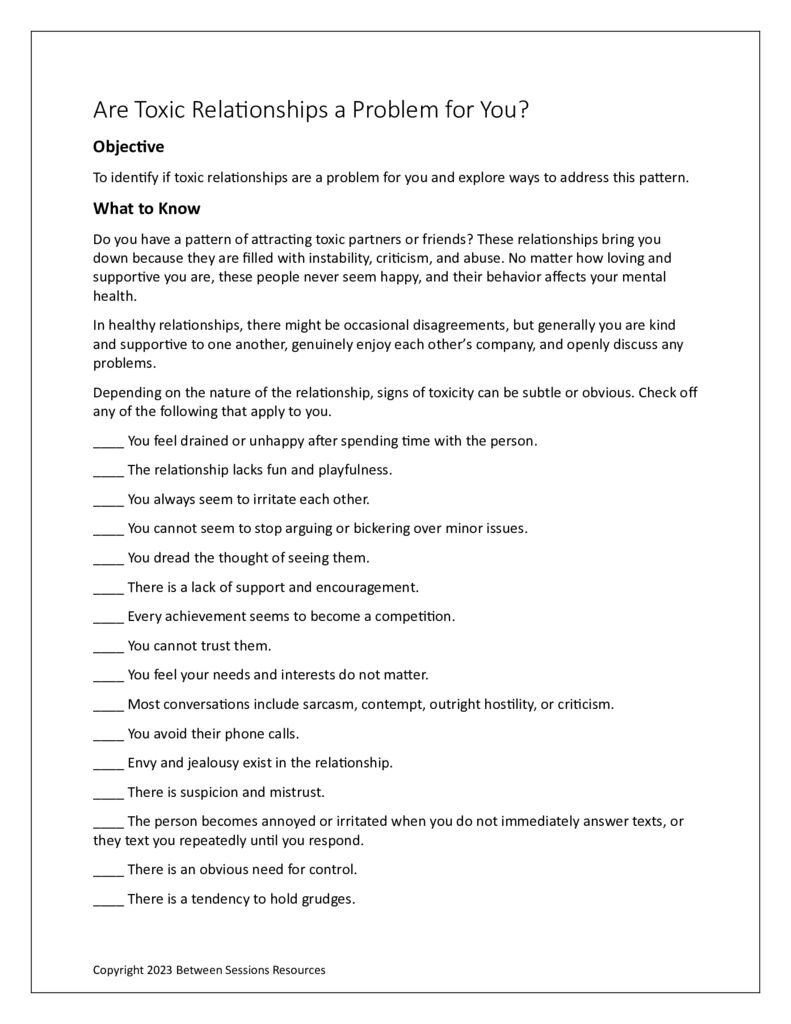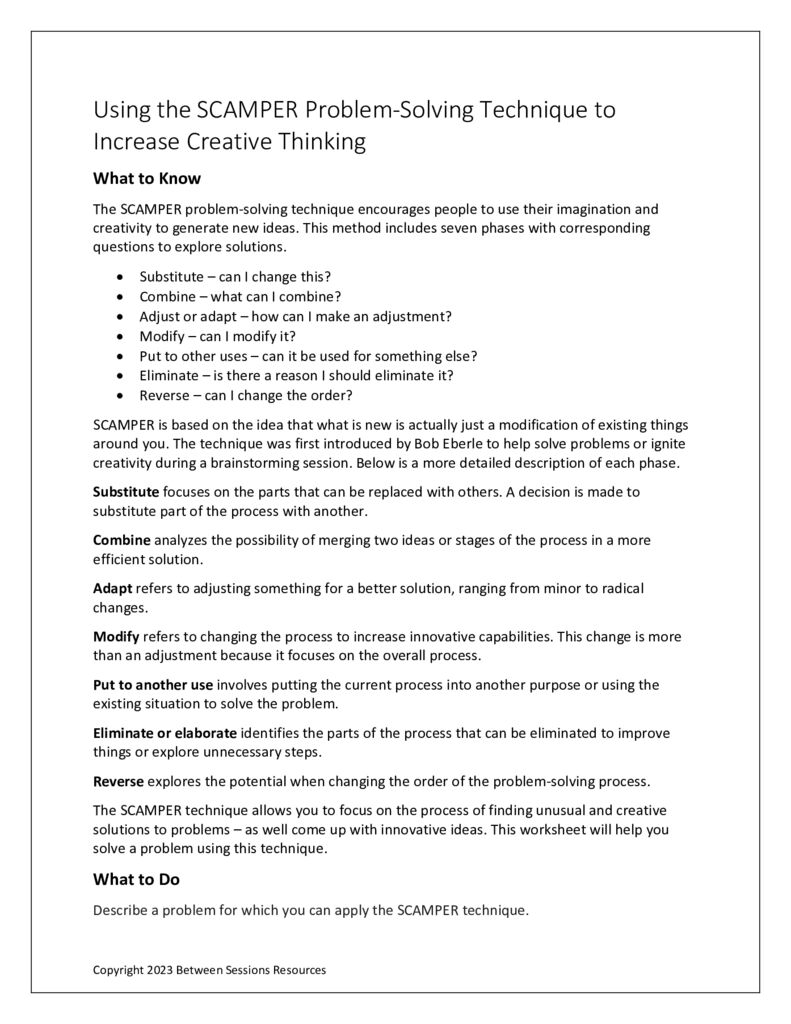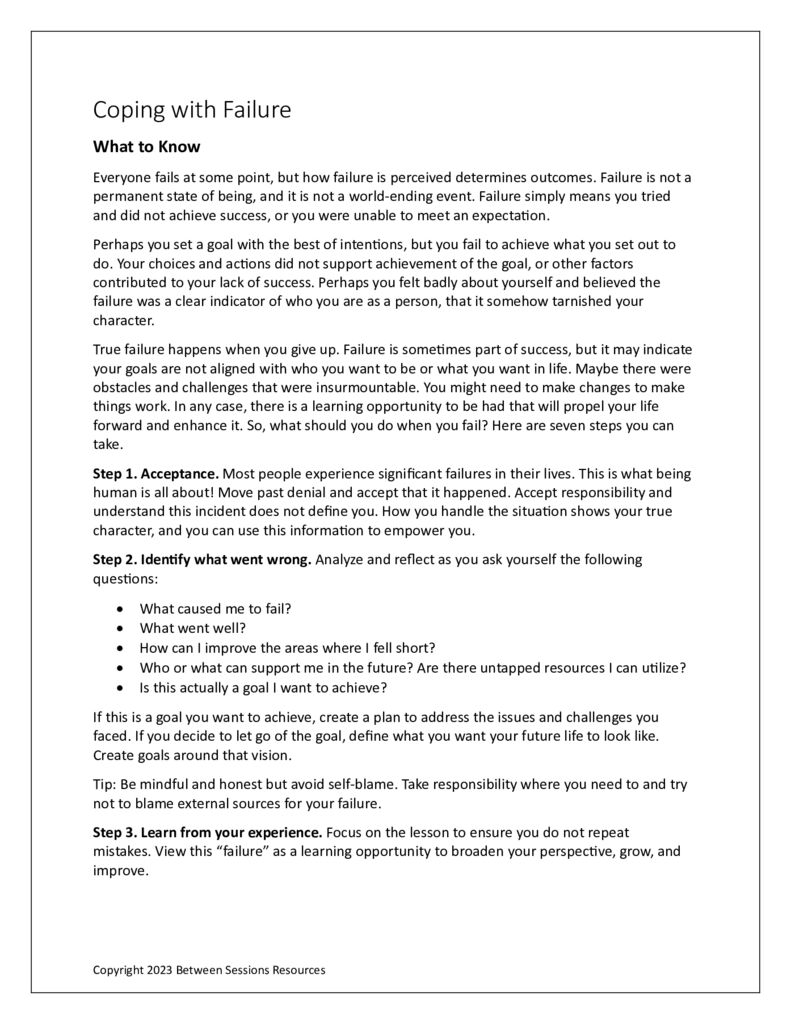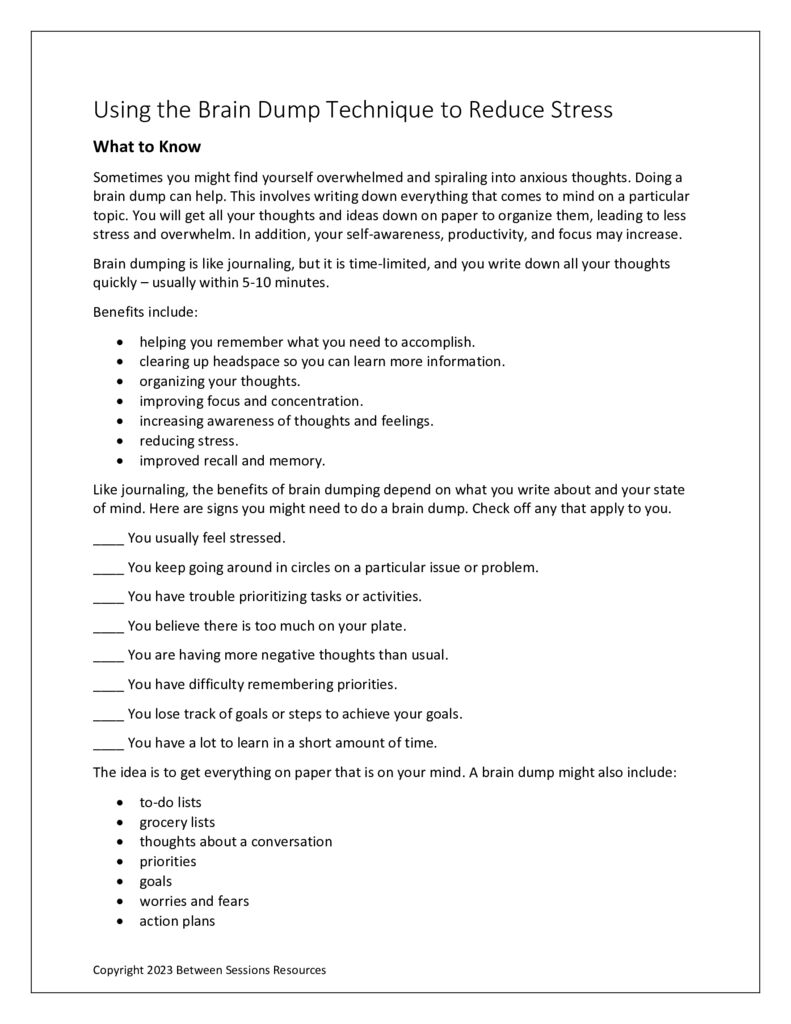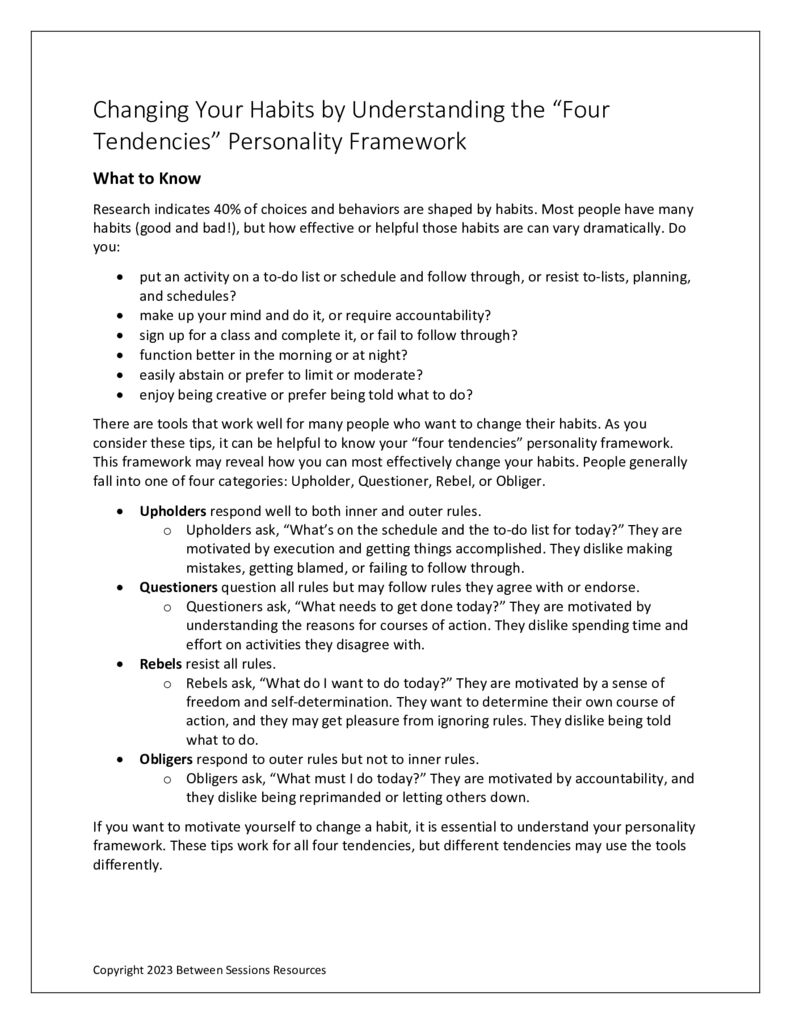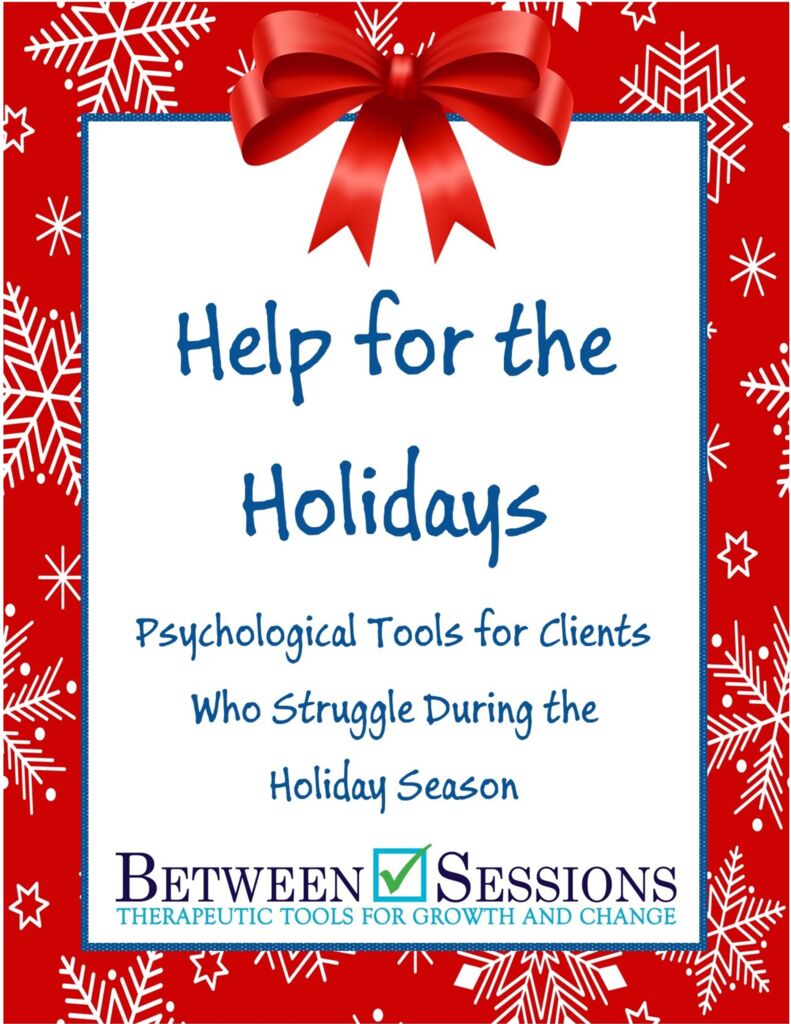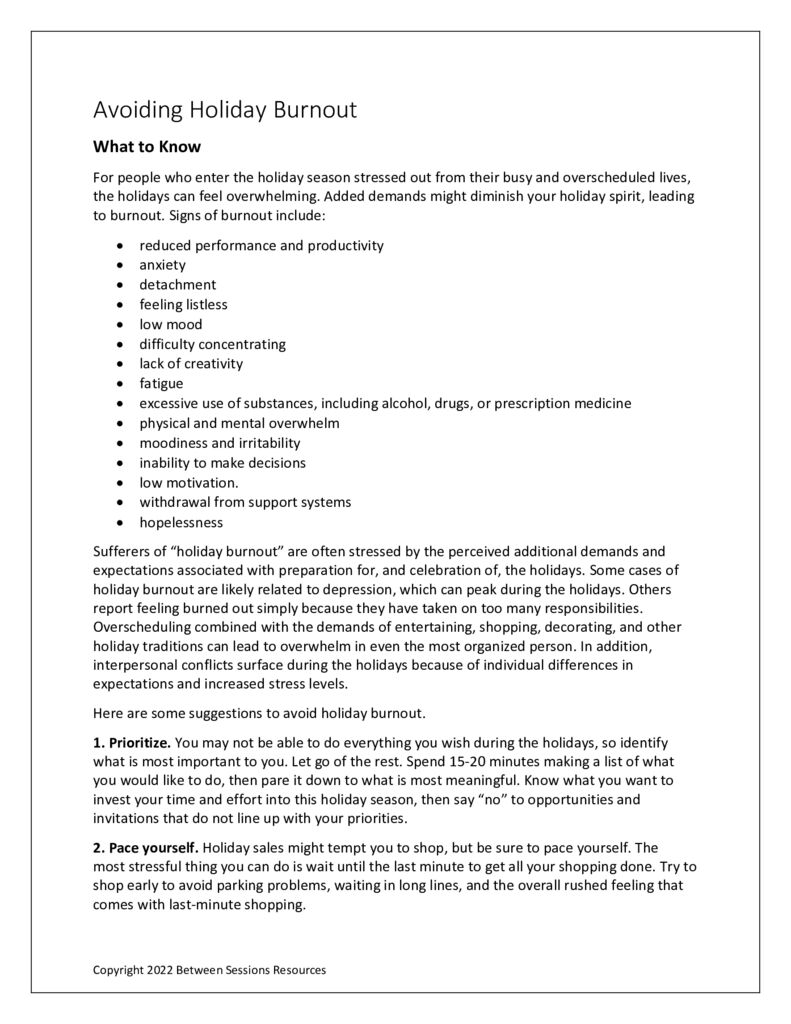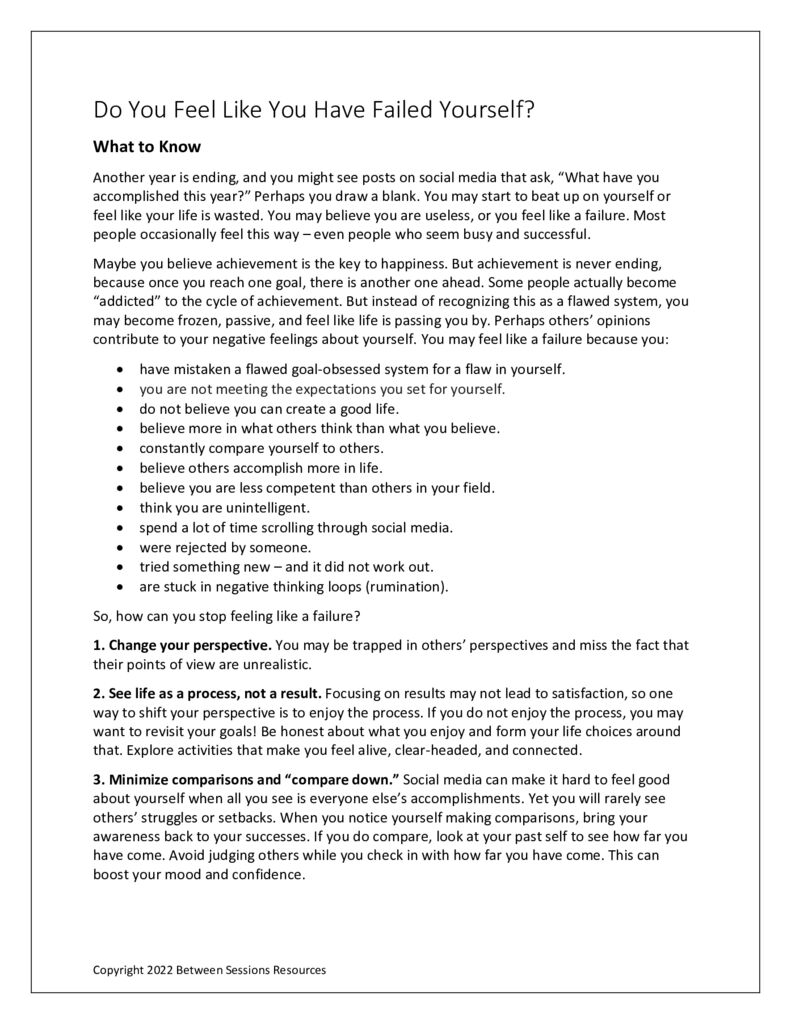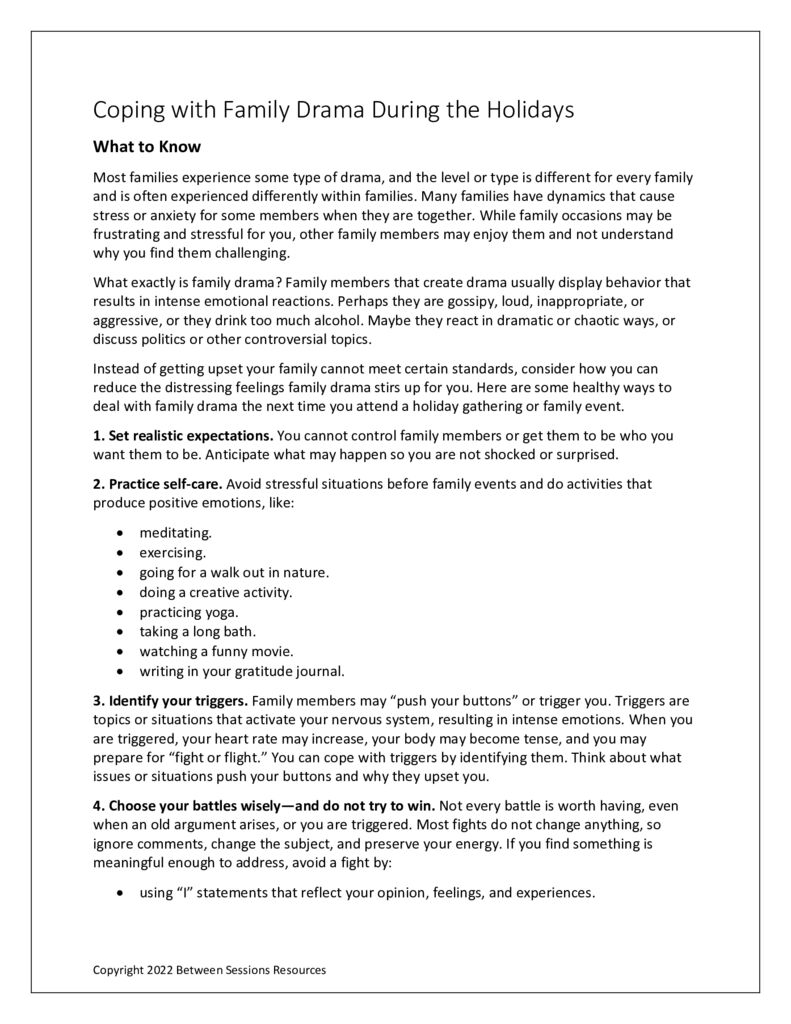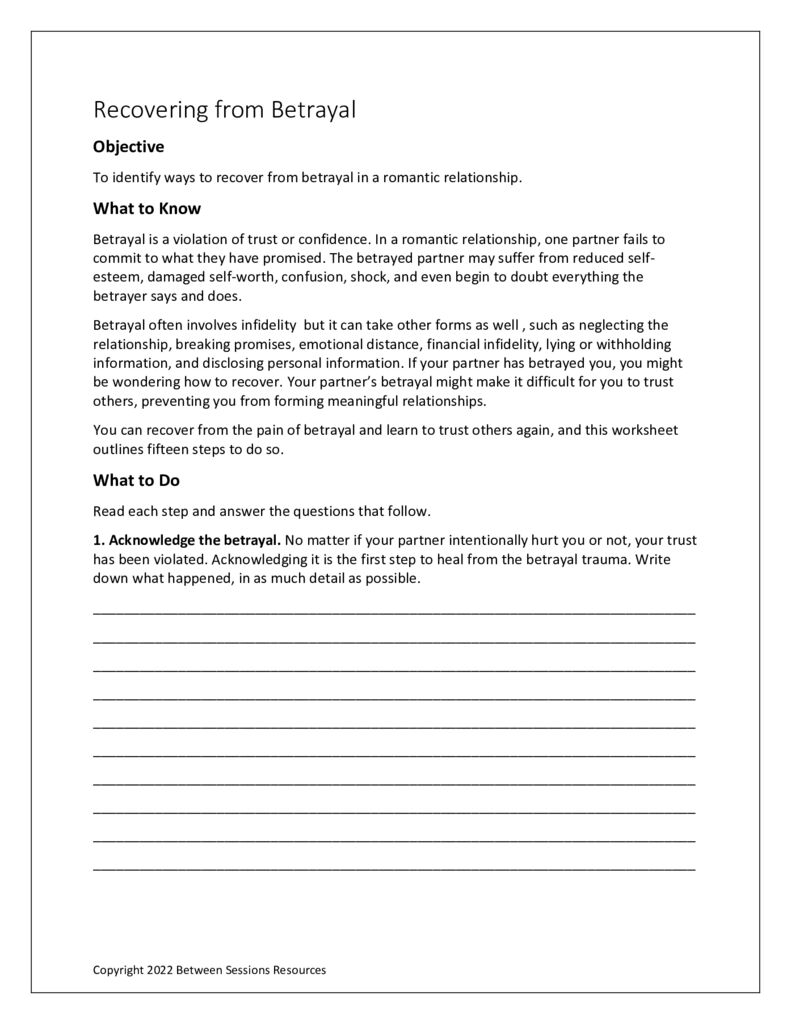Our coaching forms cover a wide variety of issues in the areas of self-growth, life skills, and wellness.
To modify the tools, click the ‘Send to Client’ button by each tool to open our Psychology Forms Filler. You can edit the tool as you see fit and then either print it out or send it to a client to be filled out online. Click here for a tutorial on using the Psychology Forms Filler.
Use the navigation links on the left of this page to view tools in a specific category. Or use the search function at the top of this page to find the exact tool you are looking for.
If you can’t find what you are looking for on this site, please let us know by
clicking here and our team of writers, graphic artists, and therapists will custom-design it for you.
This worksheet is intended to help people determine if toxic relationships are a problem for them and explore ways to address this pattern. A scorable checklist is included to rate the toxicity of the relationship from moderate to severe. Then suggestions are given to help people break a pattern of being in toxic relationships. Readers are asked to think about how people from the past may have set the stage for toxic relationships. (marriage counseling, family therapy, relationships)
The SCAMPER problem-solving technique encourages people to use their imagination and creativity to generate new ideas. The method includes 7 phases of exploring solutions. The worksheet takes the user through the 7 steps with in-depth questions. (0123, problem-solving)
This worksheet is designed to help people cope with failure using a 7-step process. (0123, depression, work issues, self-esteem, self-efficacy)
This worksheet describes a stress reduction technique that involves writing down everything that comes to mind on a particular topic. A brain dump could include thoughts about a conversation, goals, worries, fears, or a list of things that are bothering you. The worksheet describes four categories of brain dumps. It encourages people to use a notebook or journal to practice this technique each day for two weeks and record their feelings. (0122, stress reduction, journaling)
This worksheet asks people to think about their personality in one of four categories: upholder, questioner, rebel, or obliger. It then gives 7 techniques to help people can change a habit. Charts are included to help people track and change their habits (0123, habits, problem-solving, impulse control)
This workbook contains 15 worksheets to help clients who are struggling with holiday problems like loneliness, family estrangement, depression, and more. (1222, holidays, stress, depression, drinking problems)
This worksheet is designed to help people who are over-stressed by the holidays and starting to feel depressed rather than enjoying what the holidays can offer. The worksheet gives 8 recommendations for handling holiday burnout and a series of questions to help people find ways to deal with this common problem. (1222,
This worksheet is designed for people who are down on themselves because they have not accomplished all that they wanted. The worksheet helps people see that this attitude is not at all helpful to their well-being and gives them 10 strategies to overcome their habit of self-criticism. (1222, depression, self-esteem, negative thinking)
This worksheet is designed to give people a wide range of strategies to deal with family problems that typically occur during the holidays. Strategies include setting realistic expectations, self-care, identifying triggers, choosing to accept family members as they are, taking “stress breaks,” and more. (1122, family therapy, holidays, stress management, interpersonal conflict, interpersonal effectiveness)
This worksheet is designed to help people understand and get past the pain of betrayal in a relationship. Betrayal can come from infidelity, but also from breaking promises, lying, disclosing private and personal information, and more. The worksheet explains 15 steps to get past the betrayal, from deciding whether or not to stay in the relationship to practicing forgiveness. (1122, relationships, infidelity, betrayal, marriage counseling, family therapy)

